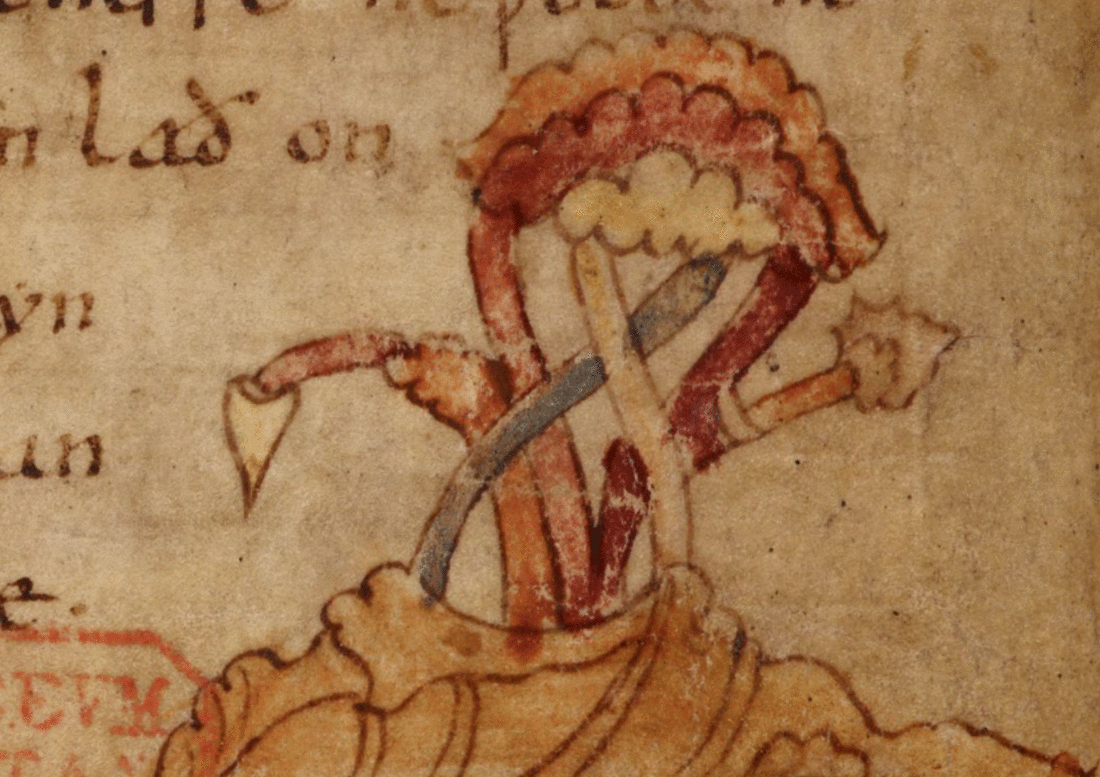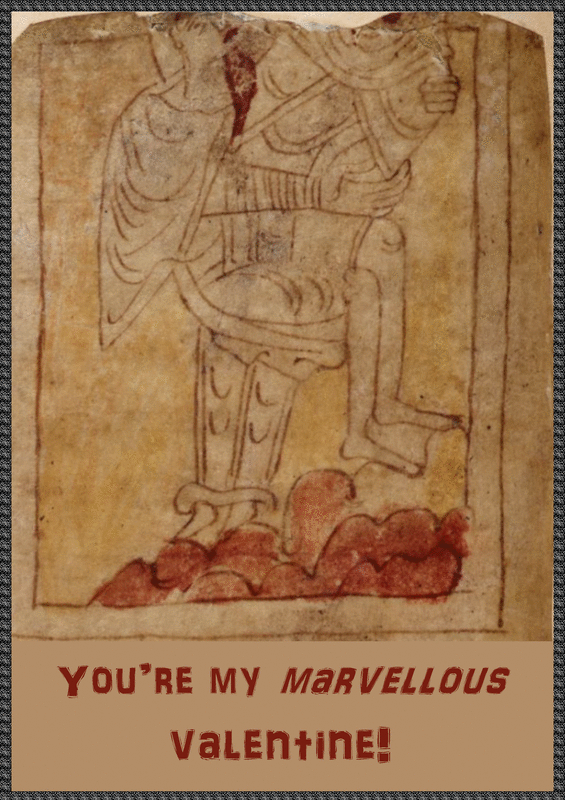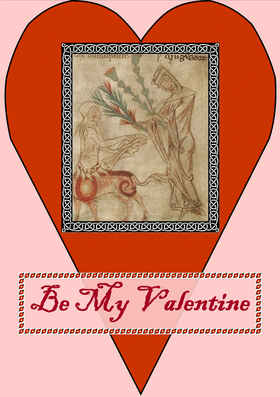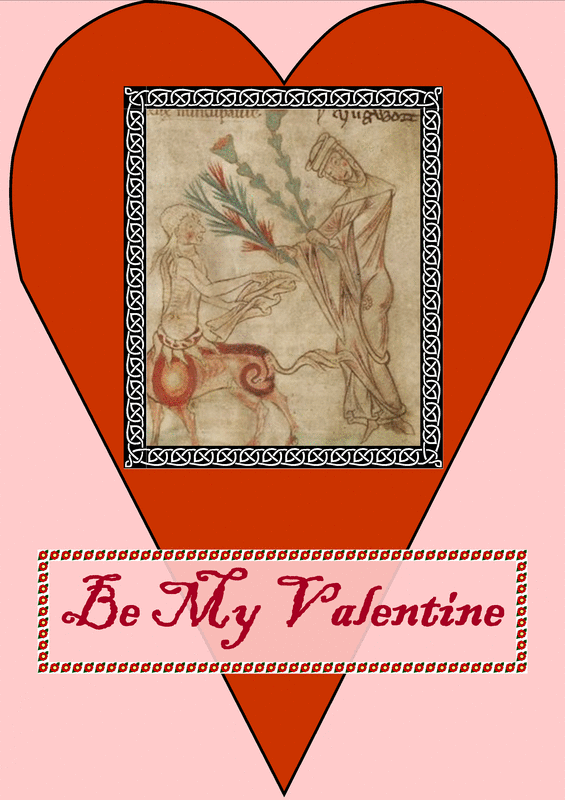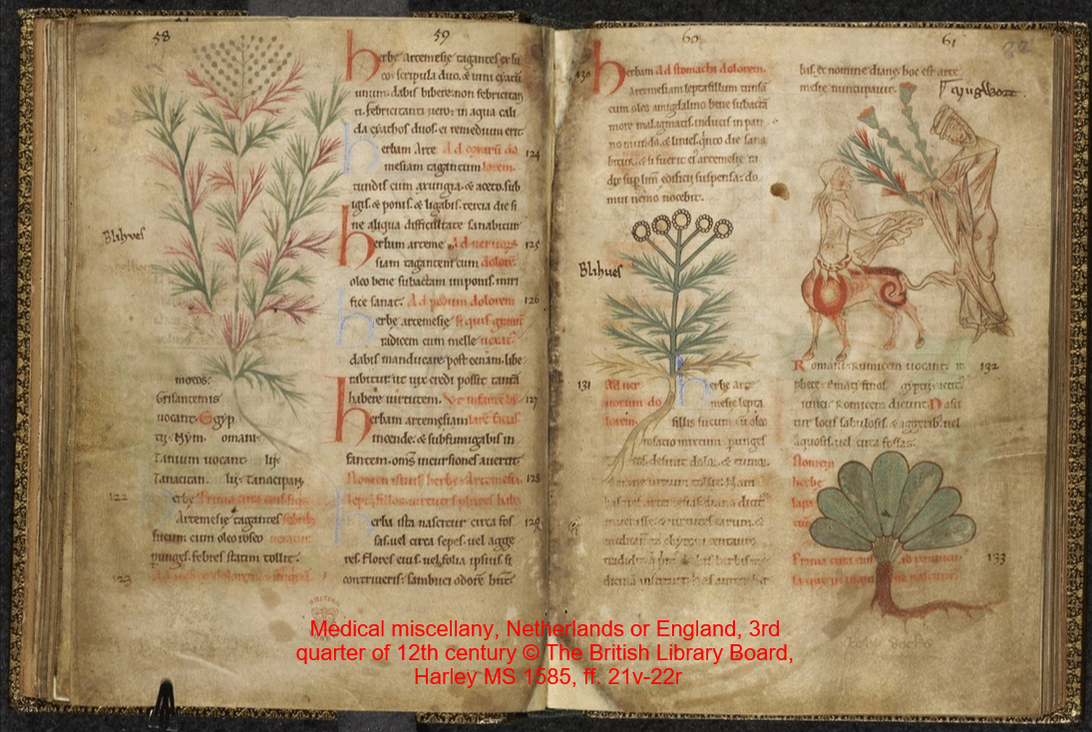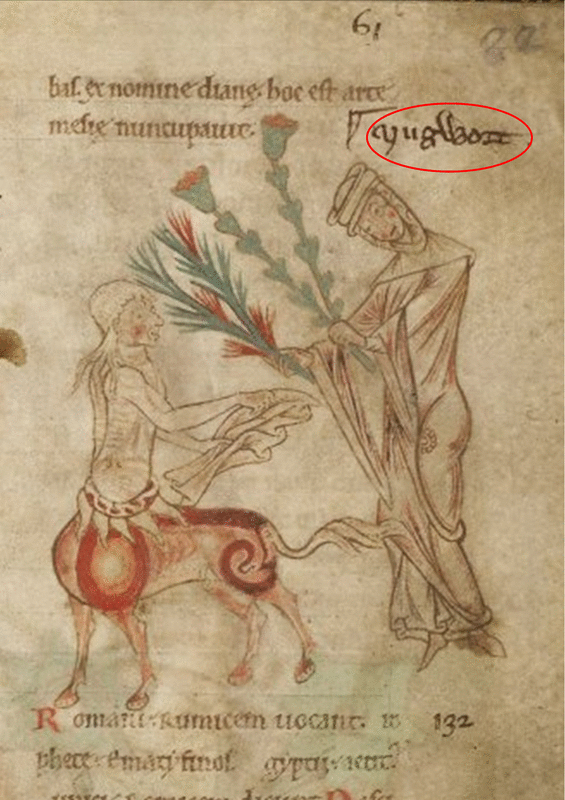|
Images: Details of tree and embracing couple, from Marvels of the East, 'The Beowulf Manuscript', c.975-c.1000 © The British Library Board, Cotton MS Vitellius A xv, folio 106v Blessed readers,
Here is the second of my Valentine's Day card designs. Should you wish to know what trauma prompted this creative burst in me, and you haven't been keeping up to date (shame on you), you can read about it in my previous post. Inside the message reads: A marvel you are. I can't believe my luck when they handed you over to me. You are indeed my marvellous valentine! Notes on the image: This scene, from the Marvels of the East, purportedly shows a man carrying off a woman as his new wife, but blow me if I can work out who is carrying whom! Note how the wearer of the short tunic (normally associated with a man) has his legs apparently suspended, whilst the long tunic wearer (surely a woman) has her feet firmly on the ground. I leave it up to you twenty-first-century folk to work out how to appropriate the spirit of this visual narrative. Marvels of the East, section 30: 'This race of people live for many years, and they are generous people. If anyone visits them they give him a woman before they let him go. When Alexander of Macedon [Alexander the Great] visited them, he was amazed at their humanity, and would not kill them or cause them any harm.' Translation by Andy Orchard, Pride and Prodigies: Studies in the Monsters of the Beowulf-Manuscript (Univ. of Toronto Press, 1995), pp. 201, and 203. Such a decent fellow, Alexander. Always concerned for others.
0 Comments
Blessed readers, I've been maligned! Accused of pompous self-righteousness! Me! It's so difficult for you all to comprehend, I know. So I had better explain. It all started when that Dr Monk fellow, who thinks he runs this website, told me that it would soon be Valentine's Day, a day on which millions of men buy their lovers red roses and chocolates. Is this in honour of Saint Valentine of Rome, I asked, priest and giver of succour to persecuted Christians, imprisoned and clubbed to death in the year 269? The very one, he responded. The dear fellow who, before said clubbing, restored the sight of his jailer's poor, blind daughter? That's him, was the reply, adding that the saint also sent the young woman a letter on the morning of his execution, signed 'Your Valentine'. Well I never! Roses and chocolates? Lovers? I simply had to say something. I'm sure you understand this, blessed ones. Unfortunately, Dr Monk didn't take too kindly to my admittedly blunt criticism of the dubious morality and inherent commercialisation of such a misappropriation of a saint's feast day. But what really tipped the fellow over the edge and, it would seem, prompted his unseemly accusation was my turning his oft-quoted twenty-first-century rhetoric on him by means of my denouncement of Valentine's Day as nothing more than the coercive reiteration of a heteronormative paradigm. Perhaps I went too far. Even monks transgress now and then, blessed readers. So, as an act of contrition, I herewith begin 10 days of penance by creating a number of medieval themed designs for Valentine's Day cards. I can't promise to produce one every day, but I will do my best to provide as many as possible up to the fourteenth day of February, whilst maintaining all my prayers and reading of Scripture and other godly activities. May you all be blessed. And please remember, it's me, not Dr Monk, who holds the copyright to these designs! Inside the message reads: I am the centaur to your Artemis. Accept, kind goddess, these bunches of mugwort as a token of my devotion. Notes on the image:
1. Artemis, or Diana (the Roman equivalent), 'was the Hellenic goddess of the hunt, wild animals, wilderness, childbirth, virginity and the protector of young girls, bringing and relieving disease in women'. Umm... goddess of virginity. Oh, we can make that fit our Valentine's Day theme, can't we? 2. Observe the annotation 'mugwort' above Artemis's head (see detail below). Mugwort (known in Anglo-Saxon times as mucgwyrt, mentioned in the Nine Herbs Charm) bears the goddess' name in its modern genus designation, Artemesia vulgaris. It is known for its insect repellent properties. In the context of Valentine's Day, you should make of that what you will. |
Details
|


